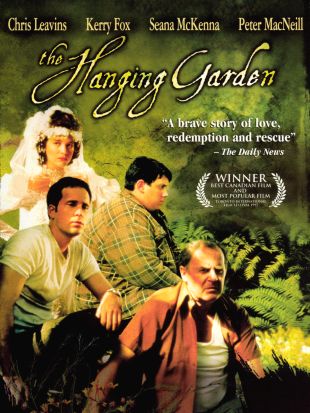
This spare, exquisitely nuanced exorcism of childhood ghosts recasts the traditional dysfunctional-family melodrama as a magical-realist fable where both memory and nightmare take physical form and it's up to the viewer to decide what's really happening. The title refers in part to the backyard garden where Whiskey Mack (Peter MacNeill) drills young Sweet William (Ian Parsons) on the names of flowers and where William later sees disturbing visions of a past that never happened. In another director's hands, the film's floral motif -- which runs through everything from the characters' names to the colors they wear -- would come off as cutesy, but here they're employed subtly to reinforce both plot and theme. In fact, most every detail that makes it into the frame contributes to the film's sense of a family equally blessed and cursed by its own traditions, from the ramshackle Nova Scotia house where the characters gather for Rosemary's wedding to the Irish heritage that informs most aspects of their lives. Stellar performances abound, from Seanna McKenna's wonderfully conflicted Iris to Joel S. Keller's lazily sensual Fletcher, but it's the four actors who play William and Rosemary as both teens and adults who give the film its bittersweet poignancy. Kerry Fox invests Rosemary with both a sardonic joyfulness and a devil-may-care realism, while Sarah Polley shows us the sullen, scared adolescent trapped inside her. Troy Veinotte likewise personifies the passive aggression and quiet yearning of the obese young William, while Chris Leavens exhibits the gravity and iron self-control that has allowed the character to transform himself. The urban gay milieu to which William has obviously fled is only alluded to; nevertheless, in excavating both the impetus for that flight and its aftermath, The Hanging Garden says more of relevance to gay men than many other, more exclusively homosexual films. In short, director Thom Fitzgerald helps fulfill both the formal and the narrative promise of New Queer Cinema several years after that movement's moment in the hipster limelight.
